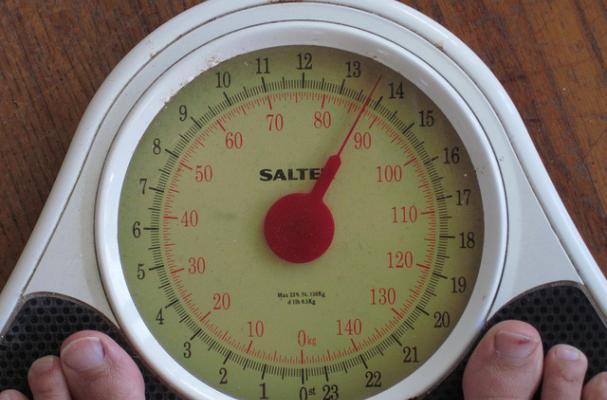
That's the question being raised by a controversial new children's book aimed at young children. "Maggie Goes on a Diet" by Paul Kramer features (SPOILER) an overweight 14-year-old girl named Maggie who goes on a diet, loses a bunch of weight, becomes popular at school and develops into the school's soccer star. Through the diet, Maggie gains confidence and develops a positive self image.
The book has been almost universally condemned by critics as sending the wrong message. "They are trying to promote healthier behavior, but at the same time they're likely promoting weight stigma," says Carolyn Becker, a professor of psychology at Trinity University in San Antonio. "For some people, getting healthier may or may not lead to significant weight loss. It's also quite possible to lose weight on an unhealthy diet.
Translation: the book inadvertently sends kids the message that being skinny is the only way to be popular and could push people to adopt unhealthy diets (maybe even eating disorders) when trying to lose weight.
Another psychology of eating expert, Karen Schachte said, “I would not recommend a diet book for any young girl, especially one that promotes a message of thin equals popular; overweight equal lonely and unpopular. This is not how to teach girls (or anyone) about taking care of their bodies, eating for health, or feeling good about themselves."
The New Yorker waded into the controversy with a headline titled "Fat at Four? A Diet Book Fail." The Los Angeles Times seemed to actually support the book, calling Maggie's diet "sensible."
Following the wave of negative publicity, Kramer made a nonsensical argument on Fox News. "I am not advocating, and never did, that children should go on a diet. This is a change of lifestyle, this is not meant to be to go on a diet." Yeah, except the book is called "Maggie Goes on a Diet."
It is important to note that childhood obesity is reaching epidemic levels in the United States and a frank discussion about those issues is important. Promoting the benefits of exercise is also a laudable goal. However, linking losing weight and skinniness with popularity seems dishonest at best and dangerous at worst.
Image Sources:











Comments
August 31, 2011
Way to make little girls even less confident about themselves. That's sooo wrong!
August 31, 2011
just to add to my last comment...why am I not surprised that the book is written by a male. Notice how I don't refer to him as a "man"?
August 31, 2011
News flash! It isn't just girls. My friend's 8-year old son has decided he wants his ribs to show - that's his barometer for whether or not he is fat. He's ALREADY concerned about being fat!! Is he misinterpreting a sensationalistic "6-pack" as ribs? Where does an 8-yr old get so affected by weight issues? Obesity is absolutely, unequivocally a problem. So are eating disorders, for unequipped children to cope with all the hype around fighting obesity!!! Where's the healthy balanced middle? We must deal with that too.